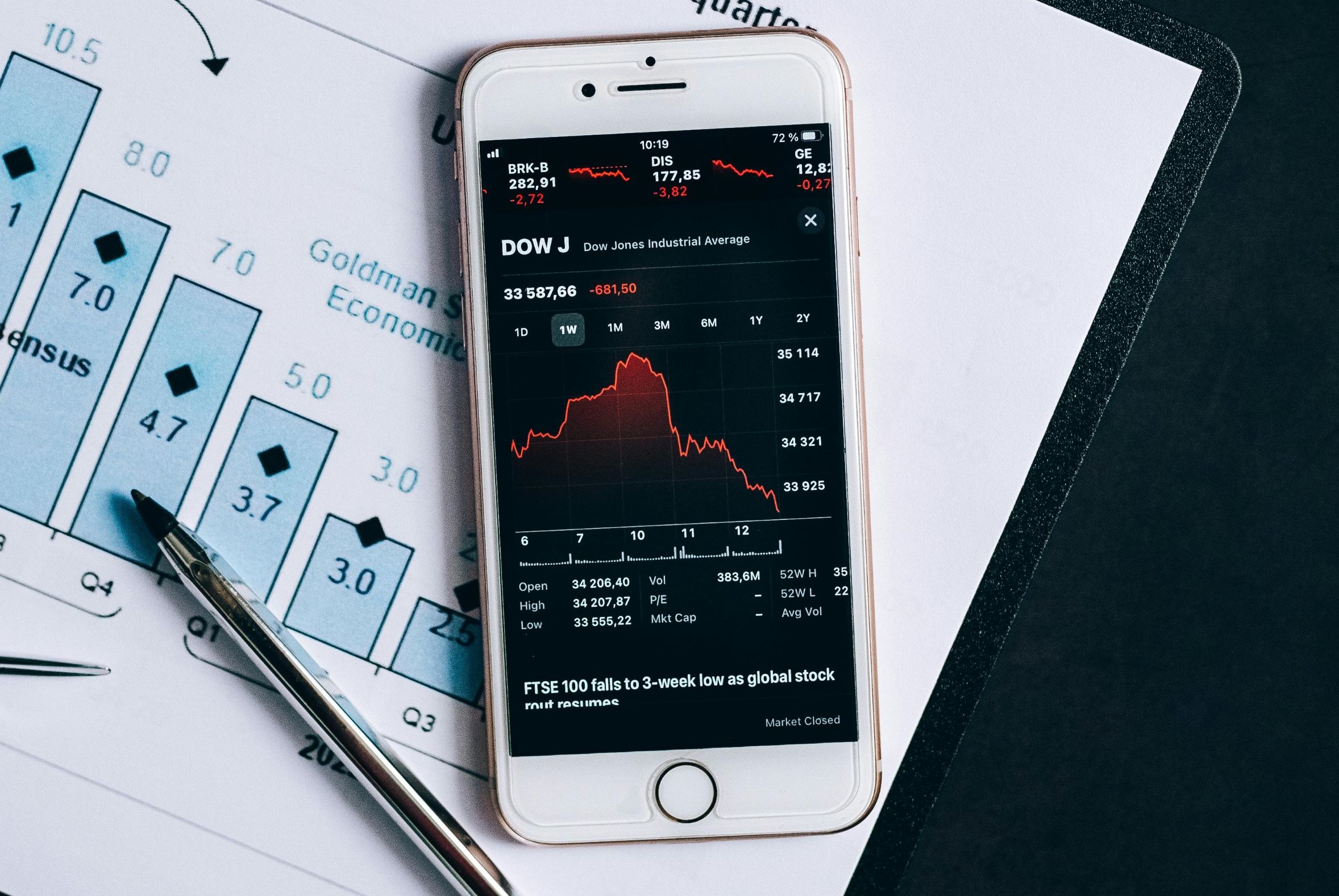Visa Stock Analysis: Is Visa a Strong Opportunity Ahead of Q4 Earnings?
$325.48
28 Jan 2026, 19:25

Pexels.com

As Trump rolls out sweeping new tariffs, global markets wobble—here's how the UK can brace for impact.
Trump's Tariffs Shake Global Markets
Donald Trump’s so-called "Liberation Day" tariffs have sent shockwaves through global markets. On Monday, US stock indices fell sharply, and Hong Kong's market plunged 13.2%—its worst day since the 1997 Asian financial crisis.
The economic jitters come after the US slapped major new tariffs on 60 countries, including a hefty 104% levy on Chinese goods.
Recession Risks Rising
Economists are sounding the alarm. Goldman Sachs has increased its estimate of a US recession from 35% to 45%. JPMorgan has gone further, putting the chances of both a US and global recession at 60%, forecasting inflation to rise to 4.4% by year-end.
If these tariffs remain, analysts warn, a full-blown recession is likely.
What Exactly Is a Recession?
A recession typically means two consecutive quarters of falling GDP—essentially, the economy shrinking over six months. In the US, the National Bureau of Economic Research officially declares a recession based on broader economic data.
While we’re not there yet, the uncertainty around Trump's trade policy is rattling investors and businesses alike.
Why the Uncertainty Is So Damaging
The biggest threat isn’t necessarily the tariffs themselves—it’s the confusion surrounding them.
"No one knows if this is a permanent shift in global trade or a negotiation tactic," says Sky News Business presenter Darren McCaffrey. “That lack of clarity creates instability, and instability can lead to economic damage.”
Markets are hopeful that Trump is using tariffs as leverage for better trade deals. But if not, prolonged disruption to trade flows could slow economies worldwide.
What a Global Recession Could Mean for the UK
Even if the UK avoids a technical recession, it won’t be immune. A global downturn could mean lower demand for British exports and increased costs for imported goods.
McCaffrey warns: “It would mean we’re all poorer in the long run.”
The UK has already struggled with consistent growth following the 2008 financial crisis, Brexit, the pandemic, and now, international trade tensions.
Silver Linings: New Trade Opportunities?
It’s not all bad news. Countries hit by US tariffs—like China, Vietnam and Cambodia—will likely seek new markets. This could open doors for the UK to expand its trade partnerships.
The EU and Canada have already hinted at interest in deeper ties with Britain. Russ Mould, investment director at AJ Bell, suggests this could be a real opportunity for the UK to strengthen its global trade presence.
How Can the UK Prepare?
Rather than retaliate with tariffs, the UK is focusing on securing a post-Brexit trade deal with the US. But if progress stalls, the UK should look to strengthen ties with other nations—India, for example, could be a key partner.
“87% of global trade doesn’t involve the US,” Mould notes. “There’s a whole world out there to trade with.”
Conclusion: Stay Calm, Stay Nimble
While Trump’s tariffs have stirred fears of a global recession, the UK can use this moment to pivot, adapt, and pursue new opportunities. The global economy is shifting—but with the right strategy, Britain can stay ahead of the curve.
Source: (SKY.com)